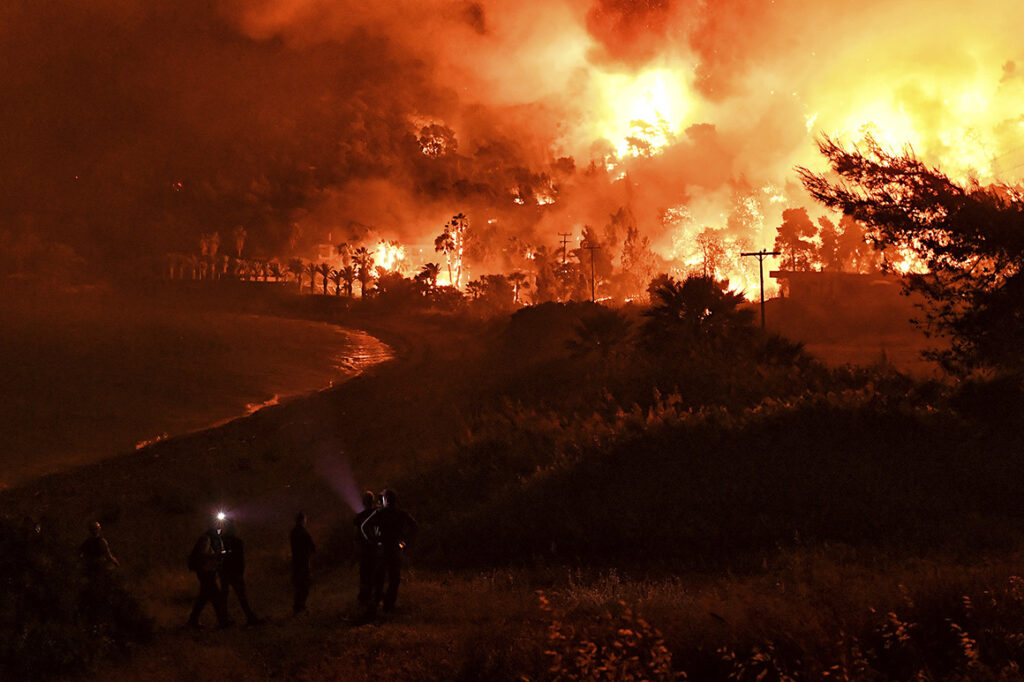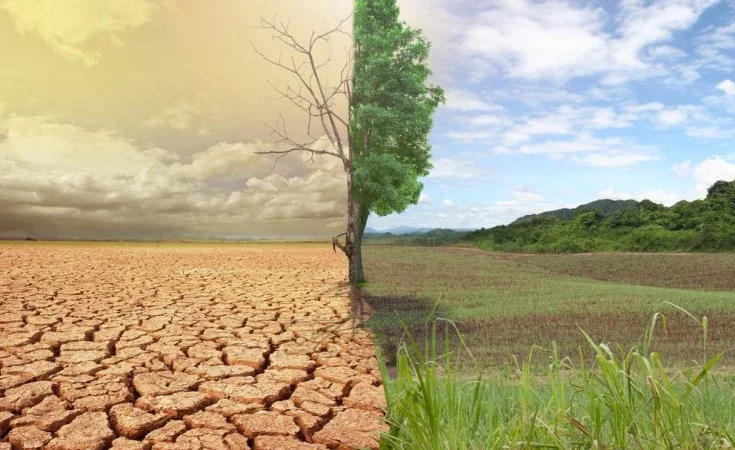Climate change is an undeniable and pressing issue that affects the entire world. It is driven primarily by human activities, particularly the burning of fossil fuels, deforestation, and industrial processes that release large amounts of greenhouse gases into the atmosphere. These activities increase the concentration of carbon dioxide (CO2) and other greenhouse gases, trapping more heat in the Earth’s atmosphere and leading to global warming. The consequences of climate change are far-reaching and multifaceted, impacting natural systems, human health, and economies worldwide.
Rising Temperatures and Extreme Weather Events
One of the most immediate and noticeable effects of climate change is the increase in global temperatures. According to the Intergovernmental Panel on Climate Change (IPCC), the Earth’s average surface temperature has risen by about 1.2 degrees Celsius since the late 19th century. This rise in temperature is associated with more frequent and severe heatwaves, altering weather patterns and contributing to the occurrence of extreme weather events such as hurricanes, typhoons, and heavy precipitation.
Extreme weather events have devastating impacts on communities. For instance, hurricanes and typhoons are becoming more intense and are causing greater damage to coastal areas. The increase in heavy rainfall events leads to flooding, which can destroy homes, infrastructure, and crops, displacing populations and causing economic losses.

Melting Ice and Rising Sea Levels
The warming climate is also causing glaciers and polar ice caps to melt at unprecedented rates. The Arctic is experiencing warming at twice the rate of the global average, leading to significant ice loss. This melting ice contributes to rising sea levels, which pose a severe threat to coastal regions around the world. The IPCC projects that sea levels could rise by up to one meter by the end of the century if current trends continue.
Rising sea levels increase the risk of coastal flooding, which can displace millions of people, particularly in low-lying island nations and densely populated delta regions. Additionally, saltwater intrusion into freshwater sources can compromise drinking water supplies and agricultural productivity.
Impacts on Ecosystems and Biodiversity
Climate change significantly impacts ecosystems and biodiversity. Many species are struggling to adapt to the rapidly changing environment, leading to shifts in distribution and behavior. Some species are migrating to higher altitudes or latitudes in search of cooler conditions, while others face extinction due to habitat loss and changing environmental conditions.
Coral reefs, which are highly sensitive to temperature changes, are experiencing widespread bleaching events, resulting in the loss of biodiversity and the collapse of marine ecosystems. Forests, too, are under threat from increased temperatures and changing precipitation patterns, leading to more frequent and severe wildfires, pests, and diseases.
Human Health and Well-being
The effects of climate change extend to human health and well-being. Increased temperatures and heatwaves can lead to heat-related illnesses and deaths, particularly among vulnerable populations such as the elderly and those with preexisting health conditions. The spread of vector-borne diseases, such as malaria and dengue fever, is also influenced by changing climate conditions, as warmer temperatures can expand the range of disease-carrying insects.
Food security is another major concern. Climate change affects agricultural productivity through changes in precipitation patterns, increased temperatures, and the frequency of extreme weather events. Crop yields can be reduced, leading to higher food prices and increased risk of hunger and malnutrition, particularly in developing countries.
Economic Impacts
The economic impacts of climate change are profound and far-reaching. Damage to infrastructure from extreme weather events, loss of agricultural productivity, and increased health care costs are just a few of the ways in which climate change strains economies. According to a study by the Global Commission on the Economy and Climate, failing to address climate change could result in a loss of up to $23 trillion in global GDP by 2050.

Mitigation and Adaptation Strategies
Addressing climate change requires a multifaceted approach that includes both mitigation and adaptation strategies. Mitigation efforts focus on reducing greenhouse gas emissions through the adoption of renewable energy sources, improving energy efficiency, and reforestation projects. The Paris Agreement, adopted in 2015, is a key international effort aimed at limiting global warming to well below 2 degrees Celsius above pre-industrial levels, with efforts to limit the temperature increase to 1.5 degrees Celsius.
Adaptation strategies are essential to cope with the impacts of climate change that are already occurring. These strategies include building resilient infrastructure, developing early warning systems for extreme weather events, and implementing sustainable agricultural practices to ensure food security.
Conclusion
Climate change is a global challenge that requires urgent and concerted action. The impacts are already being felt across the world, affecting natural systems, human health, and economies. By taking decisive action to reduce greenhouse gas emissions and implement adaptation strategies, we can mitigate the worst effects of climate change and protect the planet for future generations. The time to act is now, and the responsibility lies with governments, businesses, and individuals alike.